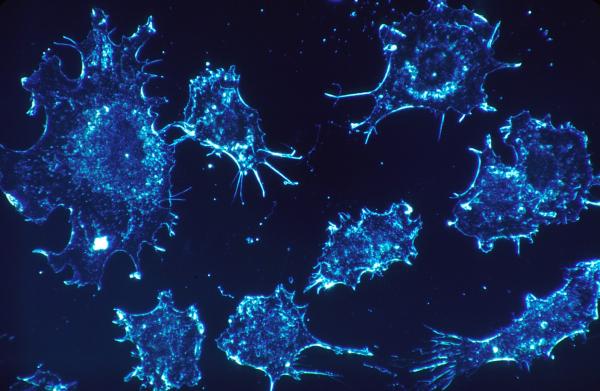IRP’s Michael Gottesman Elected to National Academy of Sciences
NIH Investigator Recognized for Insights into Drug Resistance in Cancer

Dr. Michael Gottesman
The National Academy of Sciences (NAS), established in 1863, is comprised of the United States’ most distinguished scientific scholars, including nearly 500 Nobel Prize winners. Members of the NAS are elected by their peers and charged with the responsibility of providing independent, objective advice on national matters related to science and technology in an effort to further scientific innovation in the U.S.
IRP Senior Investigator Michael Gottesman, M.D., is one of four IRP researchers who were elected to the Academy over the past two years. At the NIH, Dr. Gottesman plays two very different but equally important roles, serving as Deputy Director for Intramural Research while also leading the Laboratory of Cell Biology at the National Cancer Institute (NCI).
Over the past 35 years, Dr. Gottesman’s lab has studied how cancer cells develop resistance to cancer drugs and why some cancers are more sensitive to those drugs than others.
“I think the reason I went into this area of study was part of an intellectual odyssey that began with a desire to understand how genetic alterations influence the way mammalian cells respond to anti-cancer drugs,” Dr. Gottesman says. “We started off studying anti-cancer drugs because they are incredibly important therapeutic tools.”
Through this research, Dr. Gottesman’s team discovered that in the body, cells have a pump-like system that identifies many different anti-cancer drugs as they enter the cell. After recognizing these anti-cancer drugs, this system expels the drugs from the cell, preventing the therapeutic compound from accumulating inside the cell. This process results in the cell becoming resistant to the anti-cancer treatment.
“One of our conclusions is that there is really no monolithic reason for drug resistance,” Dr. Gottesman explains. “Researchers need to study individual tumors, figure out the reason for resistance in that particular tumor, and then try to find a way to circumvent it.”

Dr. Gottesman discovered that cancer cells (pictured above) become resistant to chemotherapy because they have cellular pumps that expel anti-cancer drugs.
The implications of Dr. Gottesman’s research reach far beyond the walls of the NIH. For example, the pump system discovered in Dr. Gottesman’s lab has led to a significant evolution of the approach to developing anti-cancer drugs. By studying those pumps, drug developers are able to see if their drugs are susceptible to the resistance mechanisms Dr. Gottesman’s team has been studying. This information can influence which drug candidates are chosen for further study, helping companies focus on the most promising therapies and saving them significant time and expense.
Dr. Gottesman’s work has also influenced the development of drugs for conditions other than cancer. In part thanks to his discoveries, it is now understood that the ultimate impact any drug has depends on how the body handles the drug when it enters the body, including how the compound is distributed through the body and excreted from it. As a result, the FDA now requires drug companies to study how cellular pump systems affect the way the body processes a drug.
The importance of Dr. Gottesman’s work has now been recognized not only by the FDA, but also by the National Academy of Sciences. However, he did not achieve this recognition alone. He has had many role models, mentors, and advisors during his scientific career. In particular, he credits his wife and fellow member of the National Academy of Sciences, NIH Distinguished Investigator Susan Gottesman, Ph.D., with driving his interest in taking a genetic approach to the study of drug resistance, a key reason why the National Academy of Science has elected him as a member.
“Being elected to the National Academy of Sciences is a great honor,” Dr. Gottesman says. “I think that it is really a recognition that the work we’re doing is both scientifically valid and has important implications for the rest of science.”
Subscribe to our weekly newsletter to stay up-to-date on the latest breakthroughs in the NIH Intramural Research Program.
Related Blog Posts
This page was last updated on Monday, January 29, 2024
